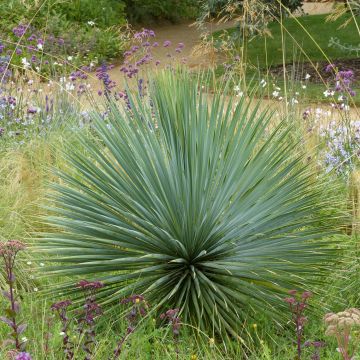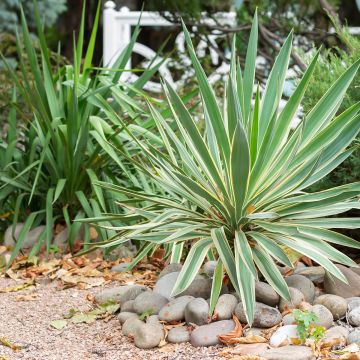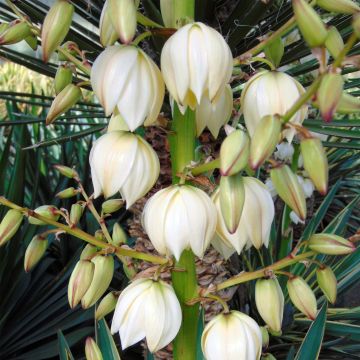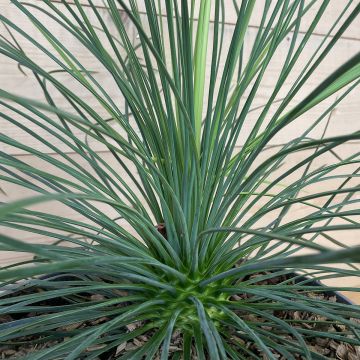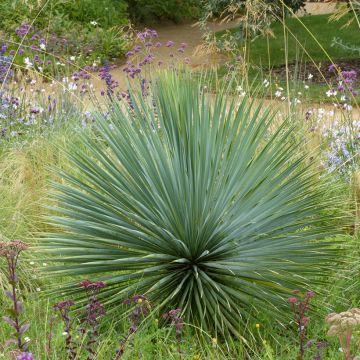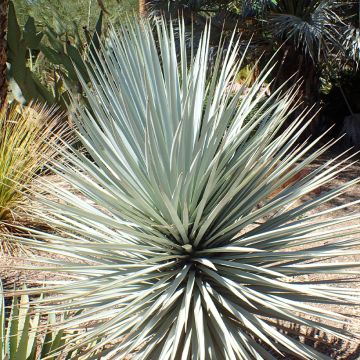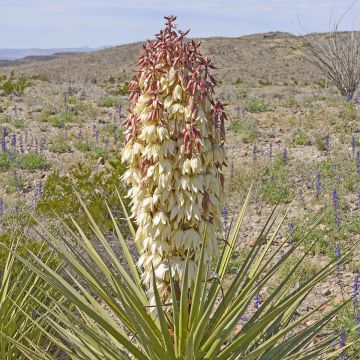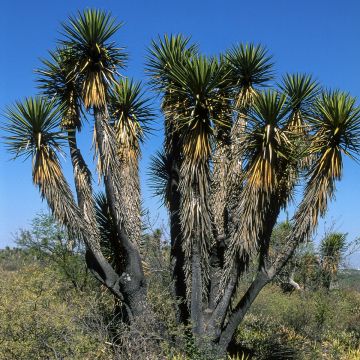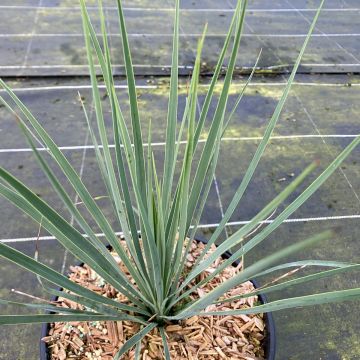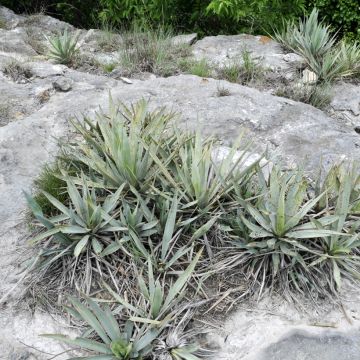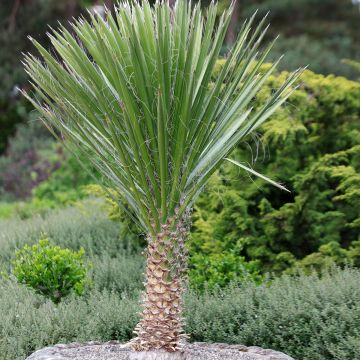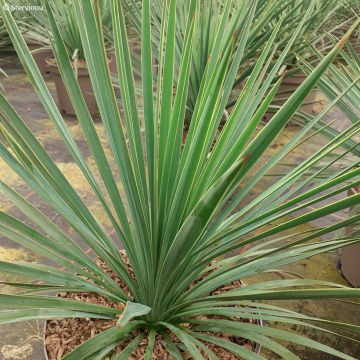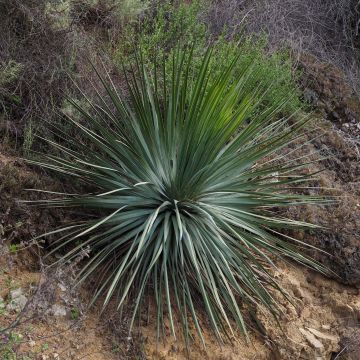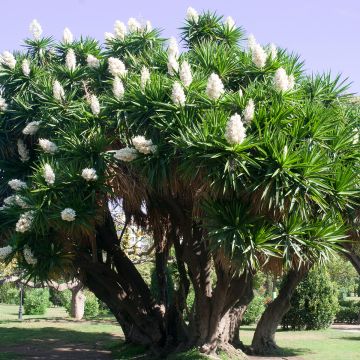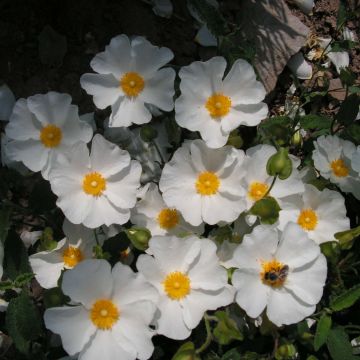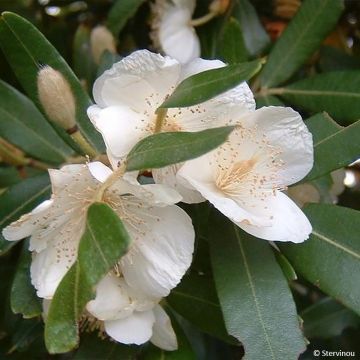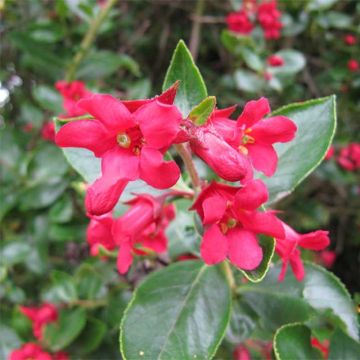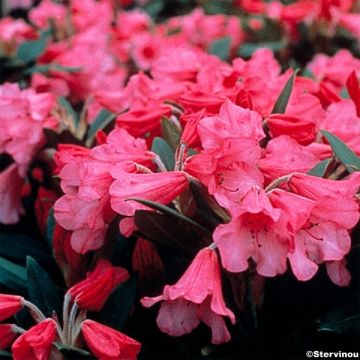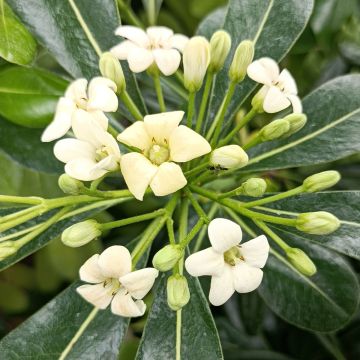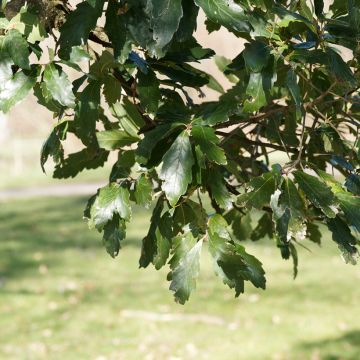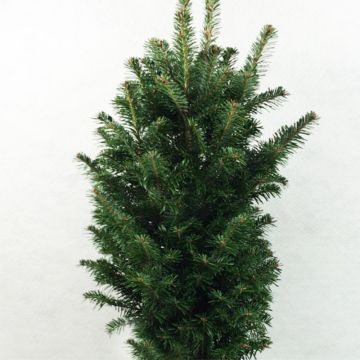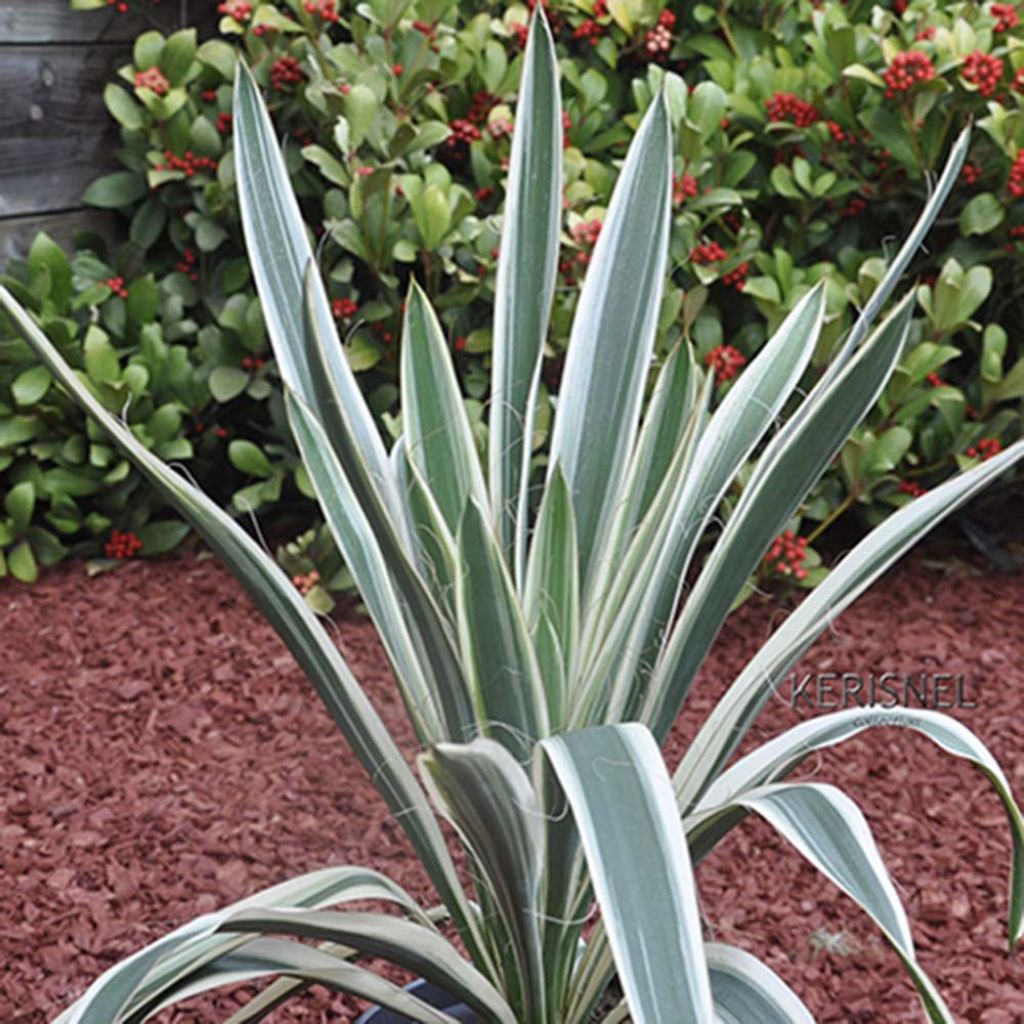

Yucca filamentosa Ivory Tower - Yucca filamenteux panaché
Yucca filamentosa Ivory Tower
Yucca flaccida Ivory
Needle Palm, Adam's Needle and Thread, Spanish Bayonet, Bear-Grass, Carolina Silk Grass, Our Lord's Candle, Spoonleaf Yucca
very dissatisfied - poor quality young plant - which has no appeal and does not grow properly yet planted in suitable soil - the promises have gone....despite a high initial price
Patricia, 23/04/2020
Special offer!
Receive a €20 voucher for any order over €90 (excluding delivery costs, credit notes, and plastic-free options)!
1- Add your favorite plants to your cart.
2- Once you have reached €90, confirm your order (you can even choose the delivery date!).
3- As soon as your order is shipped, you will receive an email containing your voucher code, valid for 3 months (90 days).
Your voucher is unique and can only be used once, for any order with a minimum value of €20, excluding delivery costs.
Can be combined with other current offers, non-divisible and non-refundable.
Why not try an alternative variety in stock?
View all →This plant carries a 24 months recovery warranty
More information
We guarantee the quality of our plants for a full growing cycle, and will replace at our expense any plant that fails to recover under normal climatic and planting conditions.

Would this plant suit my garden?
Set up your Plantfit profile →
Description
Yucca filamentosa Ivory Tower is a compact variety of filamentous Yucca, with original and attractive variegated foliage throughout the year. Very hardy, rooted in a powerful rootstock, it develops a basal rosette of large blue-green leaves marginated with white-cream and bordered by whitish filaments, less pointed than those of other varieties. Its flowers, which usually appear in summer, rise to 1.5 m (5 ft), in the form of a tall spike bearing large ivory-white bells. It will be perfect in a rock garden, on a slope, or in a pot on the terrace.
This filamentous Yucca is a plant of the agave family native to the northeast (Virginia) and southeast of the United States, spreading westward to Louisiana. Generally without a trunk, it is a botanical species forming several stems that bear rosettes of long and narrow leaves, tapering at their ends. It grows rather slowly at the beginning but once it hits its top speed will reach 20 to 30 cm (8 to 12 in) per year.
The Ivory Tower variety develops rosettes of about 70 cm (28 in) in height, and leaves marginated with cream, bordered by the characteristic filaments of the species. The floral stems appear in early summer, sometimes later or earlier depending on the climate, on specimens that are several years old. The flowers, resembling tulips in size and shape, are cream-white in colour and appear on a green and robust floral stem, organised in a paniculate manner. They are oriented downwards. The rosette dies after flowering, but many small shoots produced at its base ensure the plant's longevity.
Yucca filamentosa Ivory Tower, hardy well beyond -15 °C (5 °F) in well-drained soil and easy to grow, will thrive in any properly drained soil, even dry and poor soil or in an arid situation. It should be kept away from walkways and young children due to its pointed leaves. This plant is ideal for structuring a large rock garden, or for brilliantly occupying the centre of an exotic bed. It can be planted alone or associated with Puya caerulea on an arid slope, with Agave americana, prickly pear, giant fennel, and fairly hardy candle cacti (Cleistocactus strausii, Cylindropuntia imbricata) and viper's bugloss from the Canary Islands, all equally undemanding. It can also be planted in a very large pot on the terrace, right next to a banana tree or a Tetrapanax, carefully choosing a sheltered spot in full sun.
The flower petals are edible: they can be served as a garnish or prepared as fritters. Before the flowers have appeared, the floral spike can also be consumed and cooked like asparagus.
Report an error about the product description
Yucca filamentosa Ivory Tower in pictures
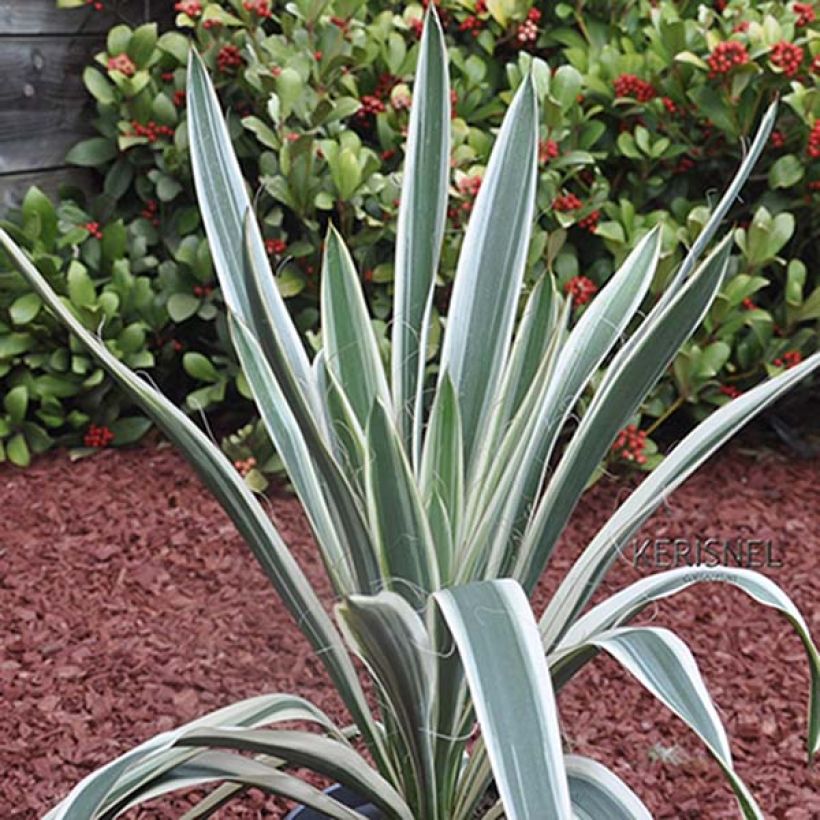

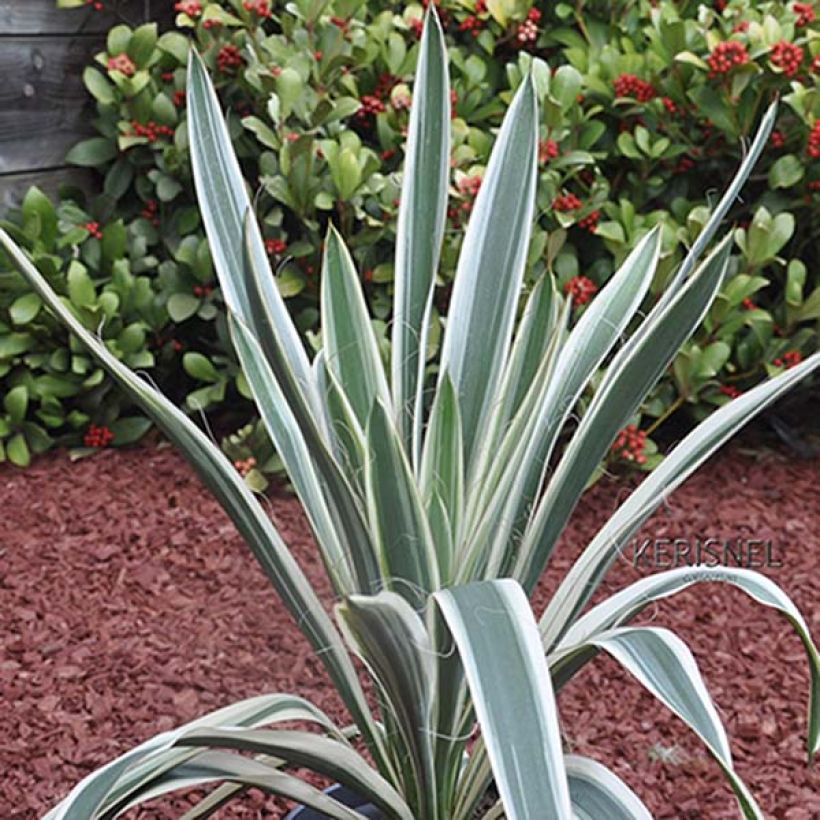

Plant habit
Flowering
Foliage
Botanical data
Yucca
flaccida
Ivory
Agavaeae
Needle Palm, Adam's Needle and Thread, Spanish Bayonet, Bear-Grass, Carolina Silk Grass, Our Lord's Candle, Spoonleaf Yucca
Cultivar or hybrid
Other Yucca
View all →Planting and care
Plant Yucca filamentosa Ivory Tower in spring or autumn in a sunny position and in a well-drained and ordinary soil, or even sandy, poor, clayey, rocky and limestone soil. This plant really requires little maintenance, but does not appreciate waterlogged soils in winter, which can impair its hardiness. Remove faded stems.
Planting period
Intended location
Care
-
, onOrder confirmed
Reply from on Promesse de fleurs
Similar products
Haven't found what you were looking for?
Hardiness is the lowest winter temperature a plant can endure without suffering serious damage or even dying. However, hardiness is affected by location (a sheltered area, such as a patio), protection (winter cover) and soil type (hardiness is improved by well-drained soil).

Photo Sharing Terms & Conditions
In order to encourage gardeners to interact and share their experiences, Promesse de fleurs offers various media enabling content to be uploaded onto its Site - in particular via the ‘Photo sharing’ module.
The User agrees to refrain from:
- Posting any content that is illegal, prejudicial, insulting, racist, inciteful to hatred, revisionist, contrary to public decency, that infringes on privacy or on the privacy rights of third parties, in particular the publicity rights of persons and goods, intellectual property rights, or the right to privacy.
- Submitting content on behalf of a third party;
- Impersonate the identity of a third party and/or publish any personal information about a third party;
In general, the User undertakes to refrain from any unethical behaviour.
All Content (in particular text, comments, files, images, photos, videos, creative works, etc.), which may be subject to property or intellectual property rights, image or other private rights, shall remain the property of the User, subject to the limited rights granted by the terms of the licence granted by Promesse de fleurs as stated below. Users are at liberty to publish or not to publish such Content on the Site, notably via the ‘Photo Sharing’ facility, and accept that this Content shall be made public and freely accessible, notably on the Internet.
Users further acknowledge, undertake to have ,and guarantee that they hold all necessary rights and permissions to publish such material on the Site, in particular with regard to the legislation in force pertaining to any privacy, property, intellectual property, image, or contractual rights, or rights of any other nature. By publishing such Content on the Site, Users acknowledge accepting full liability as publishers of the Content within the meaning of the law, and grant Promesse de fleurs, free of charge, an inclusive, worldwide licence for the said Content for the entire duration of its publication, including all reproduction, representation, up/downloading, displaying, performing, transmission, and storage rights.
Users also grant permission for their name to be linked to the Content and accept that this link may not always be made available.
By engaging in posting material, Users consent to their Content becoming automatically accessible on the Internet, in particular on other sites and/or blogs and/or web pages of the Promesse de fleurs site, including in particular social pages and the Promesse de fleurs catalogue.
Users may secure the removal of entrusted content free of charge by issuing a simple request via our contact form.
The flowering period indicated on our website applies to countries and regions located in USDA zone 8 (France, the United Kingdom, Ireland, the Netherlands, etc.)
It will vary according to where you live:
- In zones 9 to 10 (Italy, Spain, Greece, etc.), flowering will occur about 2 to 4 weeks earlier.
- In zones 6 to 7 (Germany, Poland, Slovenia, and lower mountainous regions), flowering will be delayed by 2 to 3 weeks.
- In zone 5 (Central Europe, Scandinavia), blooming will be delayed by 3 to 5 weeks.
In temperate climates, pruning of spring-flowering shrubs (forsythia, spireas, etc.) should be done just after flowering.
Pruning of summer-flowering shrubs (Indian Lilac, Perovskia, etc.) can be done in winter or spring.
In cold regions as well as with frost-sensitive plants, avoid pruning too early when severe frosts may still occur.
The planting period indicated on our website applies to countries and regions located in USDA zone 8 (France, United Kingdom, Ireland, Netherlands).
It will vary according to where you live:
- In Mediterranean zones (Marseille, Madrid, Milan, etc.), autumn and winter are the best planting periods.
- In continental zones (Strasbourg, Munich, Vienna, etc.), delay planting by 2 to 3 weeks in spring and bring it forward by 2 to 4 weeks in autumn.
- In mountainous regions (the Alps, Pyrenees, Carpathians, etc.), it is best to plant in late spring (May-June) or late summer (August-September).
The harvesting period indicated on our website applies to countries and regions in USDA zone 8 (France, England, Ireland, the Netherlands).
In colder areas (Scandinavia, Poland, Austria...) fruit and vegetable harvests are likely to be delayed by 3-4 weeks.
In warmer areas (Italy, Spain, Greece, etc.), harvesting will probably take place earlier, depending on weather conditions.
The sowing periods indicated on our website apply to countries and regions within USDA Zone 8 (France, UK, Ireland, Netherlands).
In colder areas (Scandinavia, Poland, Austria...), delay any outdoor sowing by 3-4 weeks, or sow under glass.
In warmer climes (Italy, Spain, Greece, etc.), bring outdoor sowing forward by a few weeks.






























